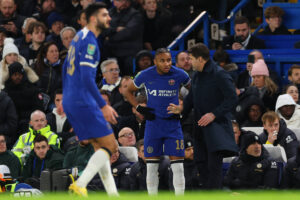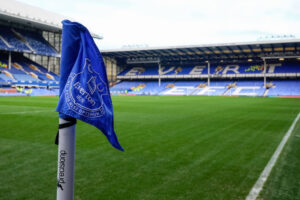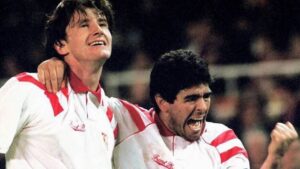Even though they have never won the World Cup, the Netherlands are constantly thought of as one of football’s all-time greatest nations. Up there with the likes of Brazil, Germany and Italy, for example. Rightfully so, too, having played in three World Cup finals as well as winning a UEFA Euro title in 1988. The Netherlands constantly produce world-class players that play for the best teams in the world. They are commonly thought of being a historical footballing powerhouse since many decades back, which, while partially true, doesn’t tell the entire story.
The Rise of The Netherlands
Early Struggles
The Netherlands made their first World Cup final appearance in 1974. Before that, they hadn’t played in the World Cup since 1938, where they were knocked out in the round of 16 against Czechoslovakia. As recently as the qualification campaign for the 1970 World Cup, they finished third in their qualification group behind Bulgaria and Poland. Although those two teams are strong, especially during that time, it is an unbelievable transition to go from finishing third in your qualification group to reaching a World Cup final – especially when you hadn’t played in a World Cup for 36 years.
Rise to Prominence at the 1974 World Cup
The World Cup history of the Netherlands was exceptionally underwhelming prior to 1974. But it was certainly worth the wait, as they graced the world with some of the best football that had ever been played. They started their campaign with a comfortable 2-0 win over Uruguay. This impressive win was followed by a 0-0 draw against Sweden and, after beating Bulgaria 4-1, they deservedly won the group. For the 1974 World Cup, a slightly different format was used. Rather than a group stage followed by a knockout stage, the tournament consisted of two group stages with the four best teams when the second group stage was concluded advancing to the knockout stage.
In the second group stage, the Netherlands ended up in a very competitive group consisting of Argentina, East Germany and Brazil. But they did even better during the second group stage than they did in the first group stage phase, picking up three straight wins without conceding a single goal – 4-0 against Argentina, 2-0 against East Germany and 2-0 against Brazil. They won the group and, as a result, they qualified for the World Cup final – their first-ever. West Germany were their opponents.
Final Against West Germany
It was a final of two footballing titans – Franz Beckenbauer and Johan Cruyff. Both teams possessed world-class squads, though, and were certainly not one-man-army teams. The Netherlands got the perfect start, taking the lead in the second minute through a Johan Neeskens penalty. But 23 minutes later, it was West Germany’s turn to be awarded a penalty. Paul Breitner managed to convert and the score was now 1-1. West Germany started pushing hard to obtain a lead in front of their home crowd in Munich and in the 43rd minute they did so through German legend Gerd Muller.
West Germany managed to see it out to the end and won their second World Cup title. The Netherlands could still head out of the World Cup with their heads held up high, though, after essentially reaching a World Cup final from out of nowhere with no real prior footballing pedigree.
1978 World Cup
The Netherlands kept their heads held up high heading into qualification for the 1978 World Cup. They got just the start they had hoped for, breezing past Iran 3-0. Things became harder for them in their second and third game, drawing 0-0 with Peru and losing 3-2 to Scotland. But they obtained enough points to advance to the second group stage.
It was here where they truly awoke and started impressing as they had done at the previous World Cup. They destroyed Austria 5-1, drew 2-2 with West Germany and defeated Italy 2-1 to secure their place in yet another World Cup final.
Controversial Final Against Argentina
Their opponents were the highly controversial hosts Argentina. Just two years earlier, they suffered from a military coup and were a nation in political turmoil. Because of this, many nations had considered not even taking part in this World Cup. Yet, here they were playing against them in the final. Argentina’s way to the final was controversial, with accusations of match-fixing. The government wanted to make sure Argentina won that World Cup by any means necessary.
The build-up to the final was also controversial. Argentina were accused of stalling, failing to show up on time. But five minutes later they arrived and the final could begin. The match itself was plagued by hostility from the crows and foul play. In the 38th minute, Argentina took the lead through the tournament’s top scorer Mario Kempes. The Netherlands pushed for an equalizer and finally found it in the 88th minute when John Neeskens’ cross found substitute Nanninga. The game went into extra time. This proved to be Kempes’ and Argentina’s game. In the 105th minute, he gave Argentina a 2-1 lead and Daniel Bertoni added a third later for good measure.
This was especially heartbreaking for the Netherlands. Not only the fact that they lost two World Cup finals in a row but also that they had lost to such a controversial team whom, according to many, shouldn’t even have been in the final to begin with.
Euro 1988 and Their First Trophy
The tournament started off poorly for the Dutch, losing 1-0 to the Soviet Union. The tides turned in their second game though, where they beat England 3-1. After their narrow 1-0 against the Republic of Ireland, they had secured their place in the knockout stage. In the semi-finals, the Netherlands were given an opportunity to exact revenge on the team that had beaten them in the 1974 final – West Germany. In 1974 West Germany won 2-1 after the Netherlands took a lead through a penalty. This time, it was the Netherlands’ turn. West Germany took the lead in the 55th minute through a Lothar Matthäus penalty, but the Netherlands fought back and managed to turn the game around and win 2-1. The same team they had lost to in the group stage awaited the Netherlands in the final – the Soviet Union.
But this was an entirely different story. The Netherlands won comfortably 2-0, one of the goals going down in history as one of the world’s greatest ever – Marco van Basten’s iconic volley.
2010 World Cup
In 2010, the Netherlands were finally given another opportunity to win football’s greatest prize. They won all of their group games: 2-0 against Denmark, 1-0 against Japan and 2-1 against Cameroon. In the round of 16, they fought off Slovakia with relative ease. Their quarter-final game was their first game of the tournament were they were not the clear favourite to win. Brazil were the opposition.
Things couldn’t have started off much worse for the Netherlands, as Brazil took an early lead in the 10th minute after a long and inviting pass found its way to Robinho who converted it with great composure. Brazil maintained their advantage through the remainder of the first half and had it not been for the heroics of Dutch goalkeeper Maarten Stekelenburg, Brazil would have likely extended their lead. But the first half ended with Brazil being 1-0 up. It was an entirely revitalized Dutch team that came back after half-time and, after eight minutes had passed, Wesley Sneijder found the back of the net with a very fortunate strike that was likely just meant as a pass. Nonetheless, the game was now even at 1-1. The game went on and in the 68th minute, Sneijder scored yet again to win the game 2-1. The Netherlands then won 3-2 against Uruguay in the semi-finals.
Infamous Final Against Spain
They had made it to a World Cup final for the first time in 36 years and they were gonna play against a team who were making their World Cup final debut – Spain. The game was a close affair that could’ve been won by either team. Most notably Arjen Robben’s attempt in the 62nd minute, where he ended up one-v-one against Iker Casillas but had his shot saved, was a major opportunity for the Dutch to win the game. But it was not meant to be.
This was the dirtiest World Cup final of all time, with a total of 15 cards being dealt out, surprisingly only one of which was red. It was a different Dutch team that was playing a different type of football than the football they played in their previous two finals. Spain weren’t fault-free, but the Dutch were dirtier than the world had ever witnessed in a World Cup final before. Despite this, the game was a close encounter to the very last second, with both teams creating good chances. That was until the 116th minute when the game was closing in on a penalty shoot-out.
Jesus Navas started sprinting into opposing territory and began a series of passes that eventually led to the ball appearing in front of Andres Iniesta who scored a convincing half-volley. Spain had won their first-ever World Cup title. According to most people, they won it deservedly.
Main Photo






